Stages of the startup accelerator: Selection of teams
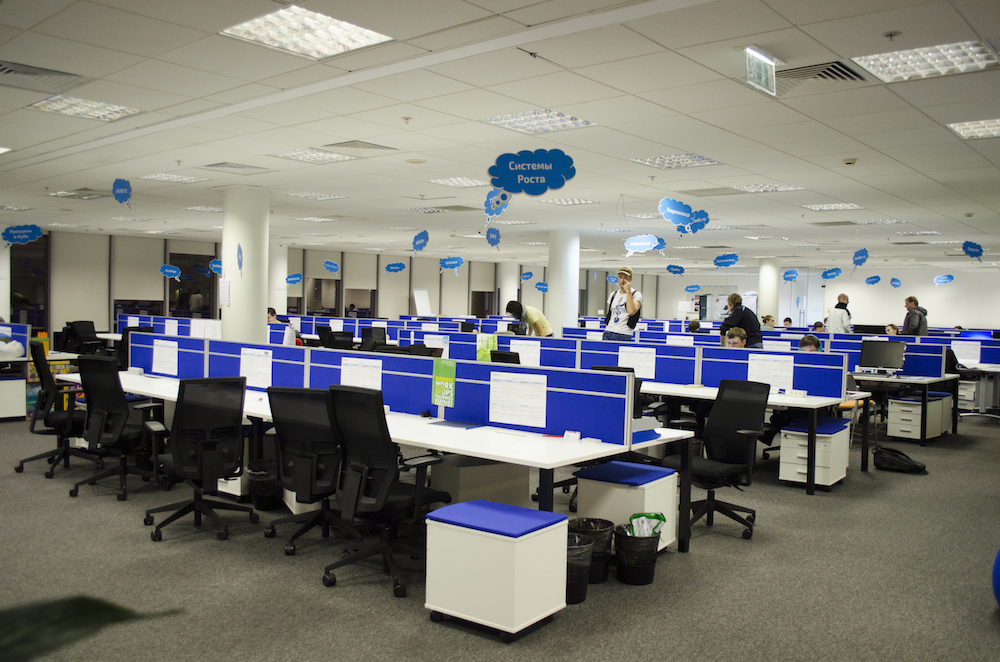
The most successful accelerators in the world perform six main functions, such as: Attraction, “Hunting”, Selection, Training, Support, Investing. It looks simple, but many may misunderstand this statement. All your work as an accelerator is to ultimately get a share in successful companies.
State institutions, educational institutions and other institutions have the same goal - to “grow” as many large successful enterprises as possible that make everyone richer, which, in turn, is the basis for business reproduction. You [as an accelerator] are simply viewing the same goal from a different perspective.
')
Outside San Francisco, this statement means that you must develop a community in order to attract new talented teams, without ceasing to work with those already found. Teach them to be better, and then help them become successful.
How about vertically oriented accelerators that specialize in hardware or medicine? Honestly, I find it difficult to advise something specific. Due to the other current problems of accelerators, it was difficult for me to formulate the difficulties that are characteristic of this particular niche.
You [as an accelerator] will definitely need mentoring specialists in your field, you should immediately identify unrealizable or simply fantastic projects (for example, a cream against cancer or something similar) and maintain a camaraderie among the founders. But on the other hand, the principles of entrepreneurship in startups from different areas are about the same (be it applications, Internet projects, b2b, etc.).
So, it is absolutely normal to form accelerators around highly specialized vertically-oriented industries like medicine or space exploration, but it is completely ridiculous to concentrate only on mobile applications or web projects.
The comment of Dmitry Kalaev, director of educational and acceleration programs of the IIDF:
Accelerator is highly dependent on the expertise of its team, mentors and partners. Effectively select, train and assist in development is impossible in abstract areas. In fact, an accelerator can only be successful if it can do something better than others. It is impossible to be better than others in all directions, therefore, it is really necessary to focus.
For example, we focus on stages and spheres. Despite the fact that, in a general sense, IIDF supports any Internet projects and mobile applications, we have a strong expertise in growing a certain type of companies: these are companies with a turnover of over 100 thousand rubles. up to 1 million rubles. per month in the areas of b2c, b2b, marketplaces.
This is also quite wide. Therefore, we also have branch directions: medicine, information security ... we still formulate and revise part of directions, as the market changes. At the same time, we clearly define for ourselves what type of projects we don’t take: games, including gambling, purely media projects and typical e-commerce. The picture may change, but the focus is an important part of the success of the accelerator.
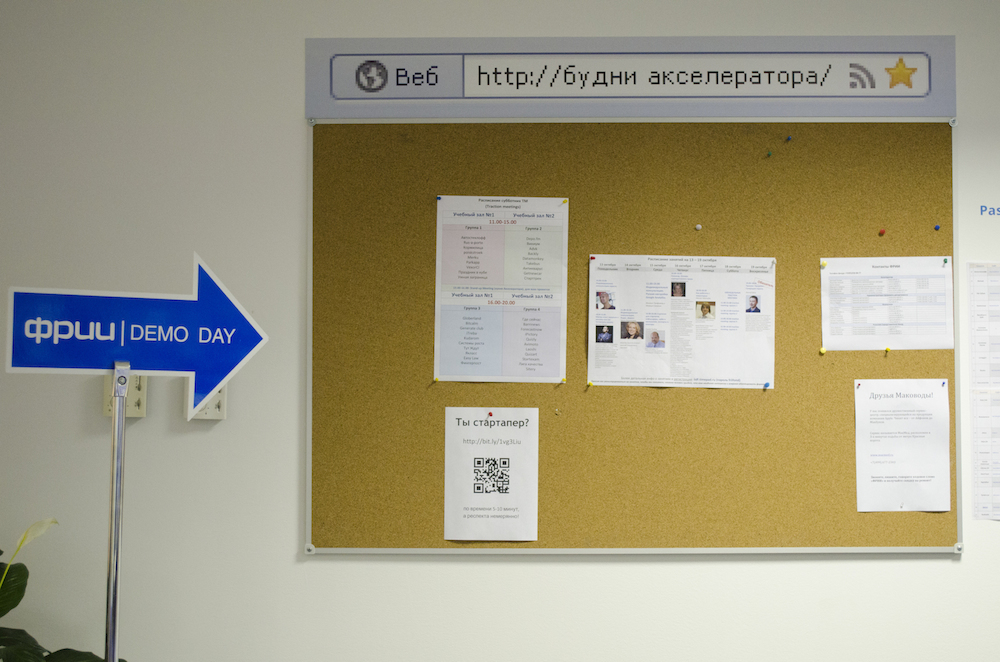
Attraction
Do your best to bring people together. Teach the community to work more efficiently (everyone, rich and poor, will benefit from economic growth.) Teach others to love entrepreneurship.
I like events (or web materials) in which experienced entrepreneurs share true stories about creating their own business, talk about tactical techniques of working in the legal field or in the subject of SEO-optimization. I also like events where startups runners take place. Or just meeting educated people in places with lots of alcoholic beverages. Get some cool stuff, for example, a virtual reality helmet (Oculus), and let people turn it in their hands (I saw how they were happy in the third world countries, where the techies knew about this helmet, but could not get at least one ).
Hakatons are great help in creating a product and in learning and practicing approaches to conducting entrepreneurial activity. However, at the Asian Startup Weekend, where I was a mentor, almost every team spent the lion's share of time to make a great presentation. At the same time, they [the team] had no idea how to confirm the value of their business ideas. Such an approach to the event makes it completely useless and even harmful.
It would be better to attract entrepreneurs free of charge or at the cost of the event. Never take money for the opportunity to make a presentation. Attract sponsors. Consider that a hackathon is your way to "unleash" the topic of entrepreneurship and encourage the community. Invest, but do not expect an instant return on your investment.
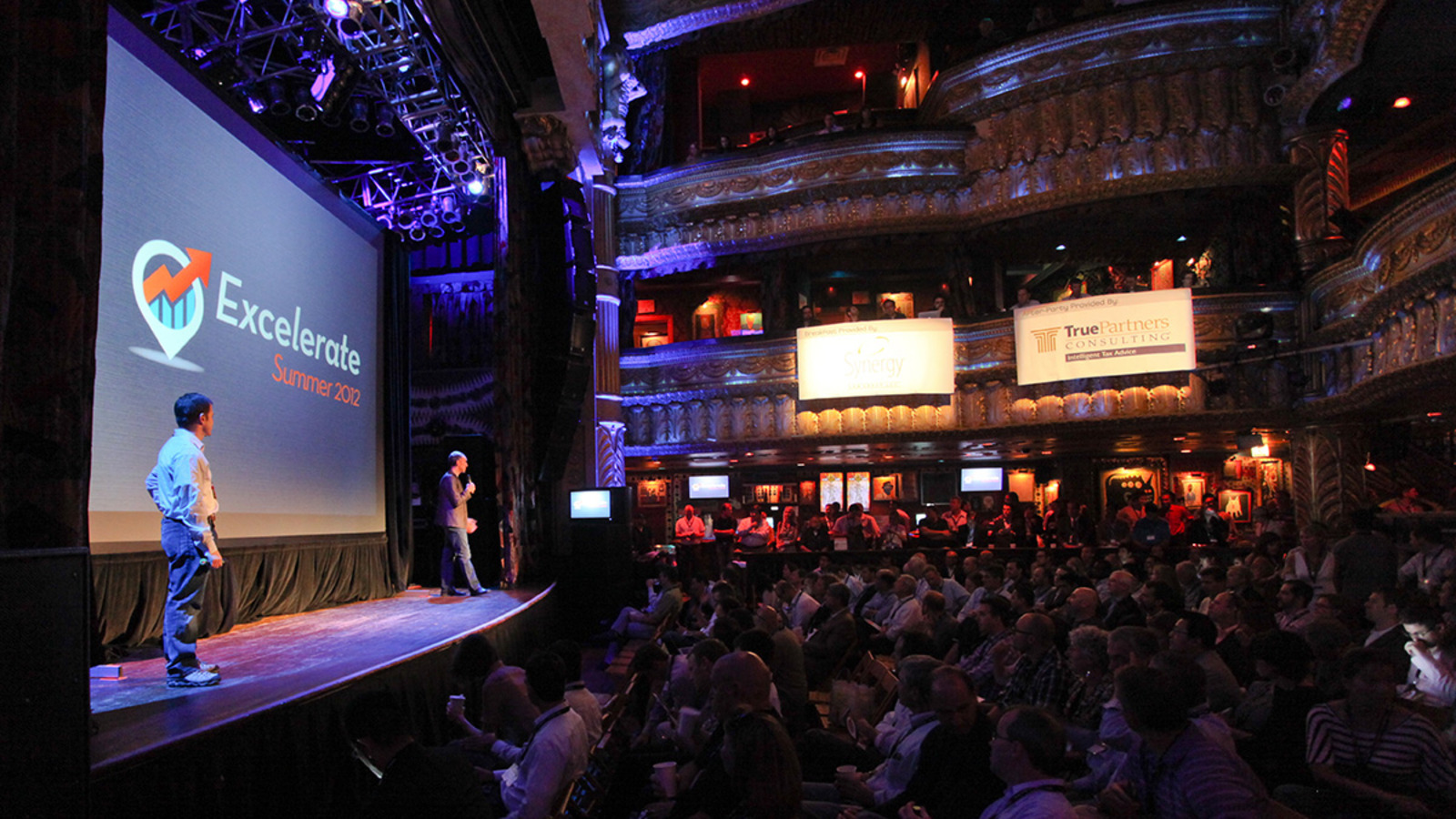
Obviously, branding plays a big role in the work of the accelerator. Will people be able to find you? Is your website optimized for relevant search queries? You need to earn recognition so that educated people, thinking about entrepreneurship, come to you.
Some of the tasks performed by the accelerator work for the benefit of the whole society, so why should the accelerator pay all expenses if society also benefits from its work? Attract public resources to your work and enlist public support: money, tax breaks, counter funding, free or cheap venues for events, the ability to quickly obtain visas, support services that help you quickly understand bureaucratic issues, free internet access, free air tickets, etc.
For example, the French and Dutch governments own a part of Air France KLM. Due to this, they provide accelerators with free air tickets to attract foreign mentors to their events! And Turkish Airlines shows short videos about startups on screens embedded in the seat backs.
The most important thing is to establish transparency in relations with the government, but not to allow it to control your work. Otherwise, it will ruin your business. Document the fact that your business takes a long time to get on its feet. I have seen politicians who, after just a couple of years of working together, stop supporting accelerators because they don’t understand that even Silicon Valley took 150 years to develop.
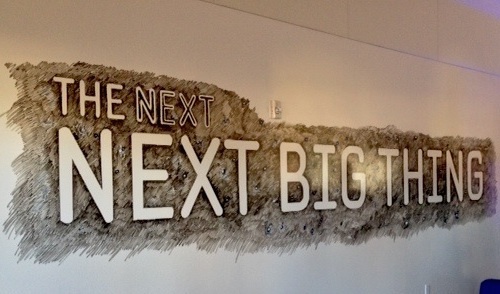
Hunting
One of the most problematic places in the work of accelerators. Even the professional baseball club New York Yankees sends its people in search of promising guys and minor league teams. Then special trainers and psychologists work to develop the abilities of budding players. You must do the same.
Look for people with advanced degrees who have not found themselves in university work. Find a successful offline company, which is worth developing on the Web (I saw a similar situation in Russia - the girl tried to bring her offline travel agency to the Internet market - now her project is in the 500 Startups California program). Find a successful startup at the stage of sowing or a project that has not yet become a business fully, and explain to them (I hope, the real) value in working with you. Find a foreign company, and give it the opportunity to move in with you. Find an introvert who likes to write code for various third-party projects, but who does not like to attend noisy events and look for potential business partners and employers there.
Yes, it is difficult and requires more effort. Search for projects and people or leave this business. If I had to choose between active and passive attraction of projects, I would definitely choose the first option. But usually 99% of their time accelerators attract startups passively.
Dmitry Kalaev's comment:
“Hunting” or as we call it in our accelerator “scouting” is a very important part of the work. Truly strong entrepreneurs are self-confident, and they practically have no idea to ask for help from the accelerator. Therefore, the most promising teams appear precisely through active search and consultation. Only by finding a weak point in terms of a strong startup, showing your expertise and proposing a working solution for a particular business, can you create a need for partnership with the accelerator among such teams.
Personally, I have more than 50 flights a year around the country, some of the staff of the IIDF practically lives in airplanes, helping teams in the regions of Russia and getting to know, through personal contacts and recommendations of many entrepreneurs, with interesting growing businesses.
Indeed, this is a very laborious and long process. In addition to finding companies at a late stage, we start working with entrepreneurs from the “I have an idea” stage - it can take a year or two before we are ready to invest in them, and all this time we stay in touch and help with various formats and expertise .
To understand the scale: more than 20 thousand people pass through formats organized by the IIDF every year, in the cities of Russia one or two events take place, in which the IIDF acts as an organizer or co-organizer.
Selection
I don't care what you told your investors or the government that you would finance 10 startups per quarter. If you find only four promising teams, then only finance them. If you have a problem with this, review strategies for attracting and actively searching for teams and / or better control your investors.
Dmitry Kalaev's comment:
In this case, the accelerator is just like any startup. The plan should be, but nothing will go according to plan. At the start, we planned to invest 400 teams in the pre-seed stage in 4 years. To do this, we had to take on average 40 startups in each accelerator.
Indeed, the reality makes its own adjustments. We had 40 startups only once in the fourth accelerator. In the rest, the number of teams ranges from 25 to 35.
This is precisely because investing in a team when it is still at an early stage is harmful - and the investment will “burn out”, and the team itself will not be able to move to the next stage of development, and investor confidence and the limit of their own faith will already be chosen.
We regularly review the strategy both in terms of priorities and requirements for the startup stage, and in terms of quantitative indicators. For example, now we have plans to invest even more than 400 startups, but we expect the average number of teams in the accelerator to be about 30. Moreover, if there are no mature companies in the market in such numbers, then we do not do artificially for a round figure.
Usually I am opposed to decisions being made “collectively” in accelerators. For professional venture capital firms, this is necessary, because before investing $ 10 million in a project, the consent of all partners is required. But in the early stages of the project, it seems to me, it is absolutely normal to express different opinions about its [project] perspectives.
Get rid of the "shaman practices" at the selection stage. And from hiring employees at random. Identify the criteria you need to evaluate projects, and clearly explain them to all decision-making experts. It is very difficult to establish evaluation criteria. Are you investing only in a business that is [potentially] able to enter global markets? Or just software that cuts down on project customers? Or only in a company with obvious monetization prospects? Are you ready to take on a founding team without technical skills?
Acknowledge that people are imperfect (even if the founder should be a “superman”) and optimize the selection according to the most important conditions in your opinion.
If you are going to invite outside specialists (for example, local businessmen) to help you evaluate startups, then they should keep up with the times. An entrepreneur who built a textile factory 20 years ago should not evaluate an Instagram start-up without your clear instructions and knowledge of the evaluation criteria.
Be flexible about your financial offers. Do not try, for example, to offer everyone without exception 50 thousand dollars in exchange for a share in the company of 8%. Y Combinator can afford it, but you can't. You need to be more flexible, especially if you are going to lure away to your company already experienced companies with experienced founders. Founders complain that their project is estimated by experts to cost less than a startup competitor? Hard, but this is business.
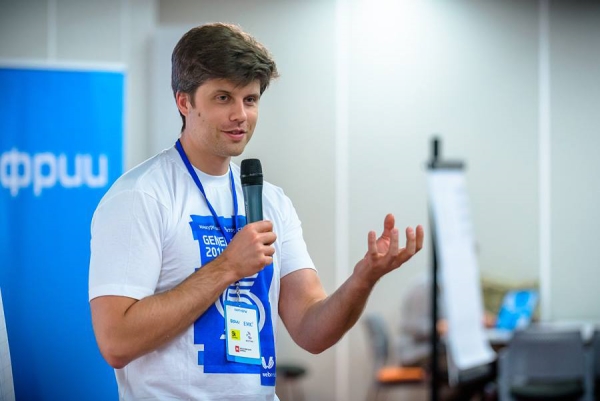
The comment of Dmitry Kalaev, director of educational and acceleration programs of the IIDF:
Today, most transactions in the accelerator are carried out at the stage when bargaining by the founders is a question of ambition, not objective reality. We will give our standard offer of 7% for 1.4 million rubles for companies with 50 thousand monthly turnover, and companies with 200 thousand monthly turnover. If the company overstepped 500 thousand monthly turnover, and such companies at the entrance to the accelerator we began to appear 1-2 in each set, then we are ready to further discuss financing conditions - such a business almost came close to the next round of investment.
Actually, the main thing here is not even a question of the amount and not a question of company valuation, but the question of what support we can provide in business growth now and how we will influence as a partner in the future. And in this context, our 7% acceleration proposal for older companies is even more useful than for startups, taking the first steps.
When investing in companies in the seed round with an investment volume of up to 15 million rubles, the price of the company is determined both by the results of the economic parameters obtained and by negotiations.
It is worth noting that the issue of bargaining depends on the position of the accelerator. Accelerator FRIA in the Russian market position is quite similar to the YCombinator in the US market. For accelerators without such a weight, gaining 3-5 teams every six months or a year, bargaining with the founders is an indispensable condition for survival.
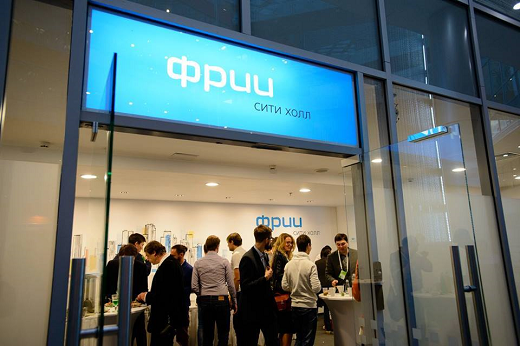 Announcement:
Announcement:On October 7, from 18:00 to 21:30, Open Day will be held for those who want to learn more about the support of entrepreneurs from IIDF and partners.
Come and chat with the FRIA team, trackers, experts, as well as Accelerator graduates.
Source: https://habr.com/ru/post/294744/
All Articles